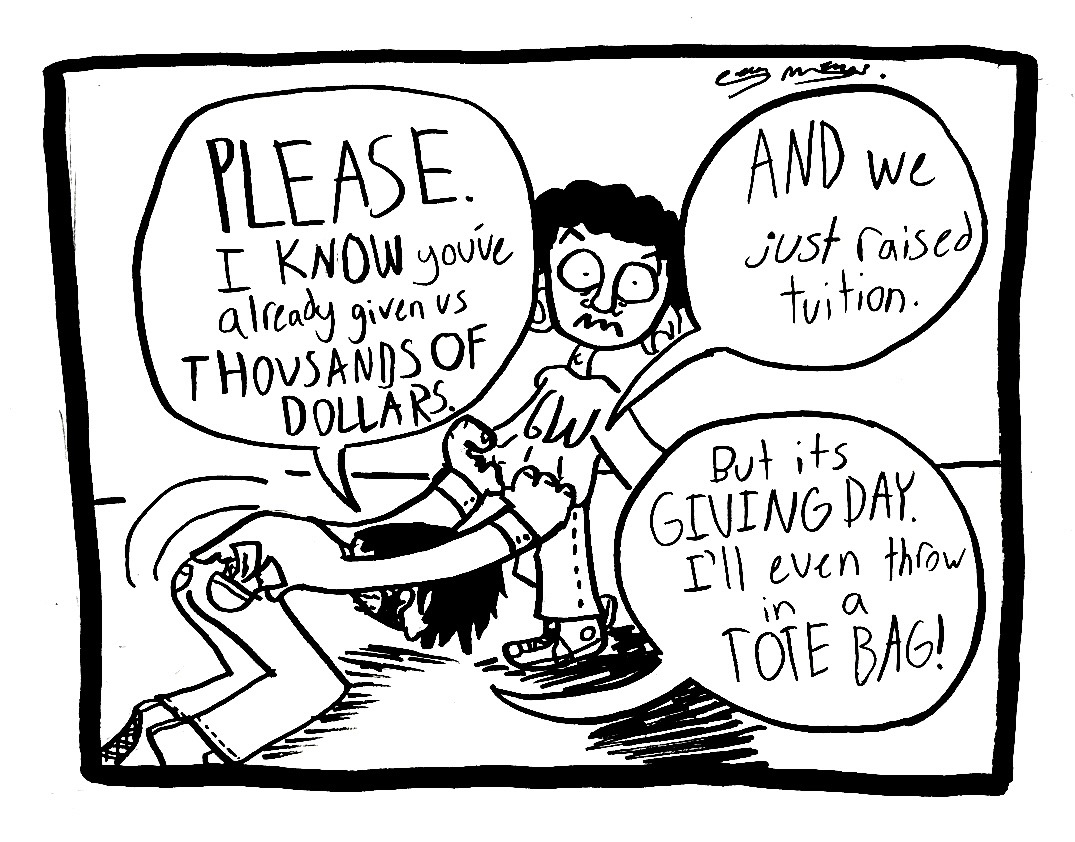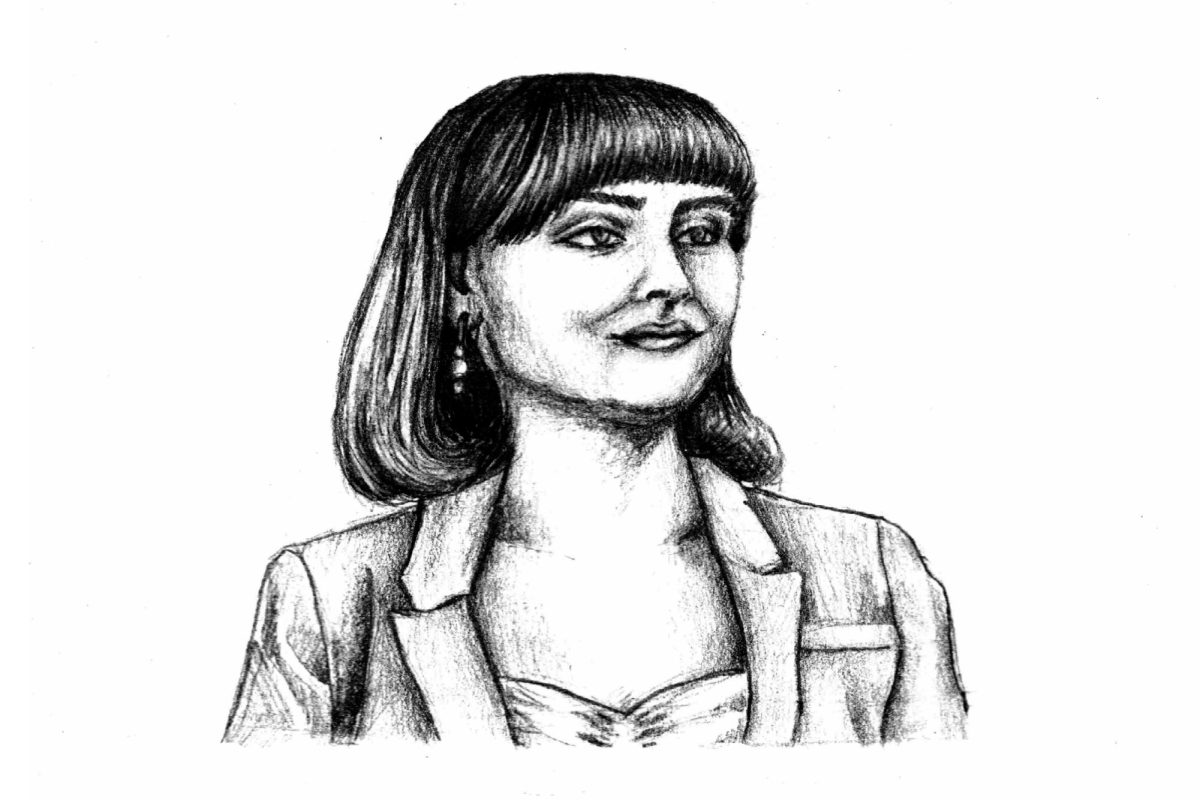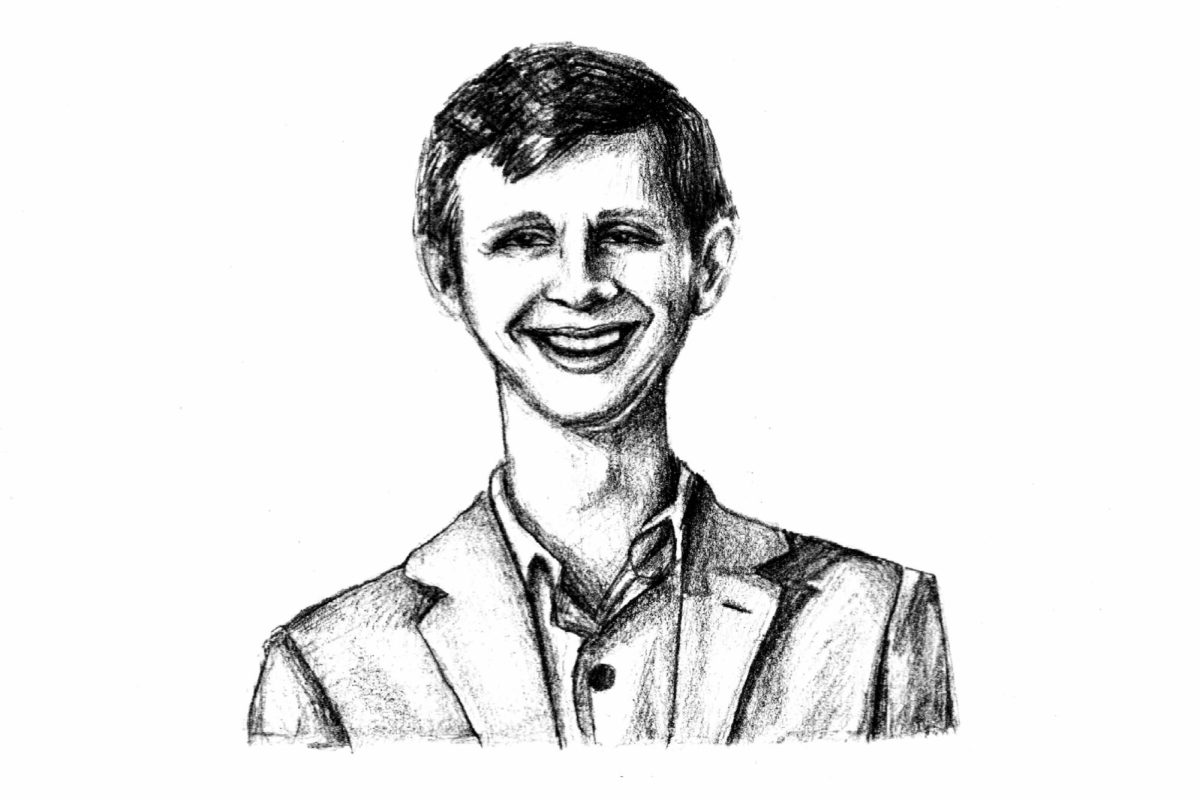Nora Hoffman is a junior studying political science and English.
The professor stood at the front of the classroom of 30 students, holding the microphone and the receiver above his head, and declared, “I’ve been informed that there is someone in this class with a hearing impairment that is larger than mine.”
I raised my hand and thought to myself, Nothing like some public humiliation to start off my 20th birthday, right?
A hard of hearing student relayed some of their experiences to me. They approached their professor on the first day of class to inform him about their communication access real-time translation provider. More commonly referred to by its acronym “CART,” communication access real-time translation is live captioning and is very similar to what a court stenographer does. The professor said he did not feel comfortable having the CART provider in the classroom and told the student that he would give them an “A” in the class or send them the notes if the student did not come to class for the rest of the semester. The student told me the professor was so rude and hostile to the CART provider that the CART provider quit after one class session.
For a university located in one of the country’s biggest deaf cities, GW lacks basic respect and decency toward its deaf and hard of hearing students. I have found that professors tend to be fond of the term “hearing impaired” – a term steeped in negative connotations and widely rejected by the deaf and hard of hearing community. We find ourselves being forced to discuss our accommodations and conditions with professors in front of the whole class. A hard of hearing student told me that one professor announced to their class that the student was hard of hearing and asked the student to wave to identify themselves. Professors who ban technology in classrooms alienate deaf and hard of hearing students, and disabled students in general, by drawing attention to us. We are effectively outed as being disabled because we are the only ones using laptops or other technology, which is humiliating. Our deafness is absolutely nothing to be ashamed of, but sharing that with other people must be done on our own terms and at our own discretion.
The COVID-19 pandemic has further exposed GW’s shortcomings when it comes to how the community treats deaf and hard of hearing students. Three days before classes began for the 2021-22 academic year, deaf and hard of hearing students were notified by Disability Support Services that our CART providers would be remote this semester. I want to emphasize this point: we are not frustrated that our CART providers are remote – it is completely understandable that people do not feel safe enough to return to in-person work. We are frustrated that this information was communicated to us at the last-minute. We had been led to believe that our CART providers would attend classes in person, and this sudden change left us very frustrated, especially since the equipment needed to carry out remote CART was not readily available. Even as I write this, at the end of the fourth week of classes, I do not have the adapter I need to connect the receiver to my device. This has left my CART providers relying on professors projecting their voices and speaking loud enough to hear and understand them and accurately caption the class, which has not been working very well at all.
I chose to attend GW because of its renowned political science program, the opportunities the university offers and a generous financial aid package (that will still leave me with nearly six-figure student loan debt). I was accepted into Gallaudet University, the nation’s only college for deaf and hard of hearing students, but I chose GW. As I enter my third and final year of my undergraduate education, I find myself asking more and more: Has this all been worth it? Did I make a mistake in matriculating at GW?
I was born and raised in Rochester, New York, the deaf capital of the United States. Despite this fact, I never had the chance to interact with my deaf and hard of hearing peers. I went to a mainstream school that had cut its American Sign Language program before I or any of my hearing peers could take it. I thought that by coming to GW and studying in D.C. I could make up for lost time. I have certainly experienced the discrimination and alienation aspect, but I did not need to make up for lost time in that department – I am well-acquainted with alienation.
I do not know if this has all been worth it, and that is my honest answer.
What I do know is that GW must improve its treatment toward deaf and hard of hearing students. To mend their relationship with deaf and hard of hearing students, administrators should conduct more staff and faculty training on different disabilities and accommodations. I encourage all staff, faculty, and students to engage with the deaf and hard of hearing community of GW and the DMV area. GW should also increase funding for DSS so it can hire more staff members and efficiently carry out accommodations for disabled students.
I want to emphasize the point that these have been my experiences. I do not speak for anyone else, but I know for a fact that I am not alone in having these experiences.
And to my fellow deaf and hard of hearing GW students, it is imperative that we stick together and become a more tightly knit community. We are stronger together, and it is important to know that we are not alone in our experiences and have shoulders to lean on.




